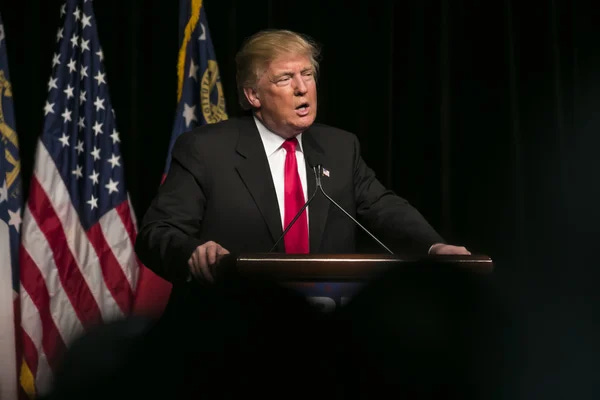4 Emerging Tech Sectors to Watch as Trump Takes Office: How Investors Can Stay Ahead and Maximize Profits
Your Weekly Shortcut to Deeptech Investing—Exclusive Trends & Startup Reports for VCs & Angels in Just 5 Minutes
In a flash: With Trump’s presidency likely to shift trade, immigration, and energy policies, investors in emerging tech sectors should prepare for changes that could impact clean energy, AI, biotech, and advanced manufacturing. By staying agile, diversifying internationally, and focusing on resilient sectors, investors can capitalize on evolving opportunities and mitigate potential risks.
1. Clean Energy and Renewables 🌞⚡
Impact: With Trump’s emphasis on fossil fuels, federal support for renewables could decline, slowing growth in U.S.-based wind and solar. However, bipartisan support for nuclear energy and energy storage may still grow.
Investment Strategy:
Focus on Energy Storage: Regardless of policy changes, energy storage is critical for efficient energy systems. Look at Enphase Energy (ENPH) for solar storage and Tesla (TSLA) for battery solutions.
Explore International Renewables: Many countries, especially in the EU, remain committed to clean energy. iShares Global Clean Energy ETF (ICLN) or First Trust Global Wind Energy ETF (FAN) offer diversified exposure to international renewable leaders.
Additional Tip: Follow state policies, as many states continue to support clean energy initiatives, which could sustain local renewable projects despite federal changes.
2. Semiconductors and Advanced Manufacturing 🖥️🇺🇸
Impact: Trump’s hardline stance on China could increase tariffs and restrictions on imports, raising costs for semiconductor companies reliant on Chinese manufacturing.
Investment Strategy:
Invest in U.S. Manufacturing Leaders: Domestic production expansion by Intel (INTC) and GlobalFoundries (GFS) positions these companies to benefit from policies favoring reshoring.
Consider Reshoring ETFs: VanEck Semiconductor ETF (SMH) and SPDR S&P Kensho New Economies Composite ETF (KOMP) focus on U.S.-based manufacturing and semiconductor companies, providing diversified exposure to this trend.
Additional Tip: Look for companies diversifying supply chains outside of China, as they are better positioned to weather potential disruptions.
3. AI and Tech Talent 🧑💻🌍
Impact: Stricter immigration policies may limit access to international tech talent, which is essential for growth in AI and innovation-heavy sectors.
Investment Strategy:
Invest in Remote Work Platforms: Companies like Upwork (UPWK) and Fiverr (FVRR) stand to gain from an increased reliance on freelance and remote tech talent.
Explore International AI Companies: Avoid U.S. immigration hurdles by diversifying with international AI leaders like Baidu (BIDU) in China or Infosys (INFY) in India. ETFs such as iShares MSCI Global Tech ETF (IXN) offer broad exposure to global tech talent.
Additional Tip: Follow emerging tech hubs in countries like India and Canada, where supportive policies foster AI innovation and access to a highly skilled workforce.
4. Healthcare Innovation and Biotech 🧬💉
Impact: Trump’s focus on reducing drug prices may pressure biotech companies to lower costs, potentially impacting profits from high-cost treatments and innovations.
Investment Strategy:
Look at Cost-Effective Healthcare Solutions: Companies like Pfizer (PFE) for accessible vaccines and Medtronic (MDT) for affordable medical devices could fare well under pricing pressures.
Consider International Biotech ETFs: The ARK Genomic Revolution ETF (ARKG) provides exposure to biotech innovation globally, reducing the impact of U.S.-specific regulatory risks.
Additional Tip: Companies focused on diagnostics, chronic disease management, and generics could perform better as they align with cost-effective healthcare trends.
General Tips for Investors
Diversify Internationally: Consider investing in ETFs or companies based in regions with policies supportive of emerging tech, such as Europe’s Green Deal or Asia’s semiconductor industry dominance. This provides a buffer against U.S.-specific risks.
Focus on Resilient Sectors: Areas like energy storage, automation, and remote work platforms are likely to remain strong regardless of U.S. policy shifts, providing stable investment opportunities even in changing conditions.
Stay Agile with Policy Updates: Set up alerts for major policy changes in sectors like clean energy, AI, and biotech, and be prepared to pivot as new regulations emerge. Quick adjustments can capture opportunities in resilient stocks or ETFs while managing risks.
By strategically diversifying in both U.S. and international markets and focusing on sectors resilient to political shifts, investors can navigate the evolving landscape and position themselves for growth in the emerging tech space under Trump’s administration.


